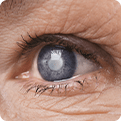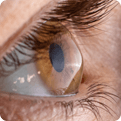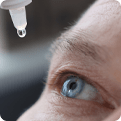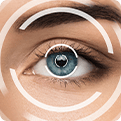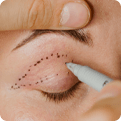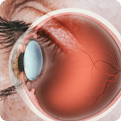
May is Healthy Vision Month, which makes taking a proactive approach to better understand your vision, vision-related illness, and how to properly care for your eyesight. Approximately 37 million adults in the US suffer from age-related macular degeneration, cataracts, diabetic retinopathy, or glaucoma. All of these diseases can lead to visual impairment or blindness. Most recently, studies have shown that healthy decisions and regular eye exams can significantly reduce your risk of vision loss.
To support Healthy Vision Month, the American Academy of Ophthalmology encourages all of us to take better care of our eye health and visit a specialist today.
Eat Well for Better Eye Health
There are many health conditions that can be prevented or alleviated with a healthy diet. Your eyesight is one such condition. To enjoy better eye health, start with the food you put on your plate each day. You want to include plenty of nutrients, including omega-3 fatty acids from fish, and vitamins C and E to prevent age-related visual problems.
To ensure you receive the proper nutrients and vitamins, add a few of these items to your dinner plate each day:
- Green vegetables, including spinach, kale, and collards.
- Salmon, tuna, and oily fish.
- Eggs, nuts, beans, and non-meat proteins.
- Oranges and citrus fruit or juices.
- Oysters and pork.
The goal is to ensure a well-balanced diet and a healthy weight.
Wear Appropriate Eyewear
The right pair of sunglasses or safety eyewear while on the job can do wonders to protect your eyesight. With sunglasses, you are protected against harmful ultraviolet rays. While a little sunlight is nice, too much ultraviolet exposure leads to cataracts and macular degeneration. You should choose sunglasses designed to block 99% to 100% of UVA and UVG rays.
Regarding safety eyewear on the job, either safety glasses or protective goggles designed to protect your eyes from hazardous or airborne objects while working or playing sports work well. Most have a polycarbonate lens to shield the eyes.
Avoid Screens Occasionally
Sure, most of us need to stare at a screen for long periods – because of work, school, or for entertainment purposes after a long day. But staring at a computer or phone screen for too long can lead to eye strain, blurry vision, headaches, and focus issues.
To protect your eyes from screen woes, wear your glasses or prescriptions and make sure they are up to date. If the eye strain does not diminish, visit an eye doctor immediately.
Furthermore, when using a computer for long periods, rest your eyes every 20 minutes. You can do so by looking 20 feet away for 20 seconds. Then, every two hours, take a 15-minute break.
We Can Help You Take Care of Your Eyes
If you’re worried about your eyesight, schedule a consultation and eye exam with Eye Care of Delaware. Contact us online or give us a call at (302) 454-8800 to schedule your appointment!

